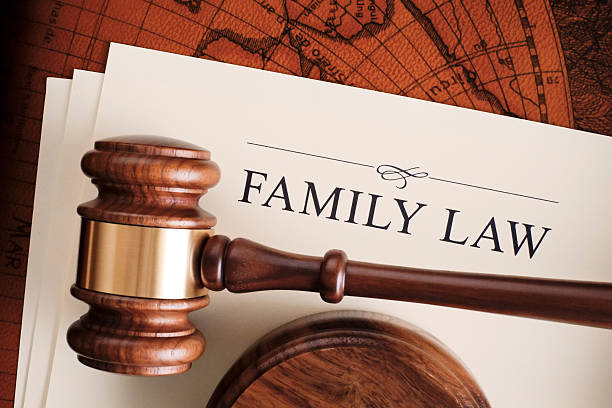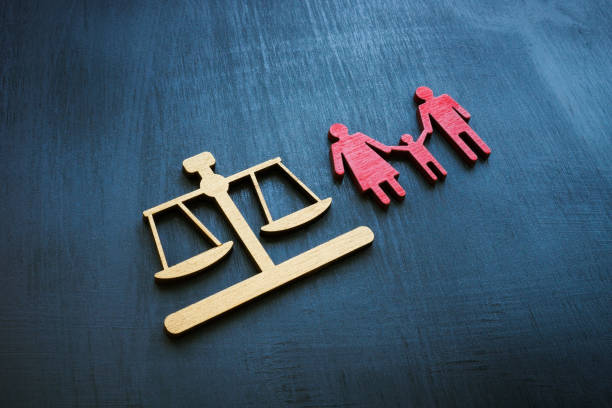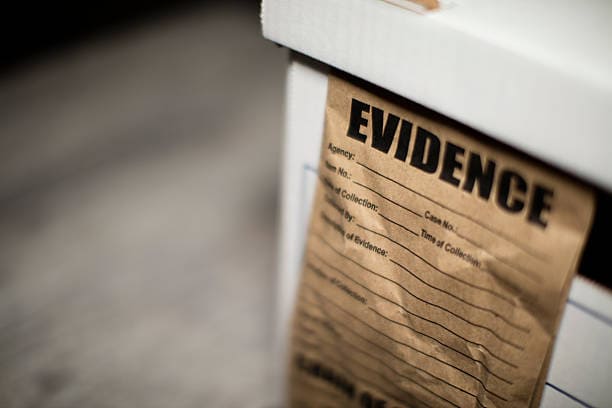This article will outline matters relating to evidence in family law proceedings. Evidence is one of the most important elements of legal proceedings since this influences the outcome of the case. In family law proceedings, evidence is information or data gathered for a judge’s review. Some forms of evidence may include:
- Direct testimonies of witnesses either given orally or in writing;
- Police or medical reports;
- Records from any kind of agency, company, business, or institution;
- Documents such as those that have marks, figures, symbols, perforations, maps, plans, and drawings;
- Audio or video recordings in mobile phones, computers, discs, flash drives, and tablets; and
- Objects
In common law, the “best evidence rule” means that the contents of a document would be proven by presenting the original. Section 48 of the Evidence Act 1995 outlines how a party may introduce evidence of a document’s contents. There are also more relevant acts in the Family Law Act 1975 aside from the Evidence Act. Read on to know more about these acts about matters relating to evidence.
Section 69ZT: Court Decisions on Rules of Evidence
Section 69ZT of the Family Law Act states that rules of evidence are not applicable unless the court decides. There is an exception under Section 79 of the Evidence Act that outlines opinion evidence. Opinion evidence is direct evidence that outlines the expert witness’s opinions, inferences, or beliefs about the facts. However, there are provisions in Section 69ZT of the Family Law Act that state:
1. The court may give whatever weight it deems appropriate to the evidence, even if it is admitted. This statement is true due to the fact that the Evidence Act is not applicable in Section 69ZT.
2. The court may nonetheless choose to apply one or more of the Evidence Act’s provisions if the court:
- Determines that the circumstances are exceptional
- Has considered the importance of the evidence in the proceedings
- Has taken the nature of the subject matter of the proceedings
- Has considered the probative value and the court’s authority to postpone the hearing in order to give directions
This essentially means that if courts accept hearsay and opinion evidence, the court may still give them little to no weight. But, how will courts accept matters relating to evidence in proceedings? In order for courts to accept evidence, they will require the testimony of a qualified witness who presents evidence in an acceptable manner. This includes qualified witnesses who can give evidence based on their:
- Training
- Study
- Experience

Cross-Examination During Proceedings
Cross-examination refers to a party or a solicitor in a case questioning a witness to test the witness’ evidence. Courts may cross-examine witnesses on behalf of the other parties, including any co-accused, after giving evidence. However, courts may not need to cross-examine a witness if they have not said anything that undermines the prosecution’s case.
Section 69ZV: Matters Relating to Evidence From Children
Section 69ZV outlines the matters relating to evidence from children. This section outlines points about a child’s representation (oral or in writing) of a matter that is considered “evidence” during the proceedings. This evidence, if relevant to the welfare of the child or another child, is not excluded from the proceedings only because there is a prohibition against hearsay.
This is the case even if this evidence would otherwise be inadmissible because of the law against hearsay. However, the court may give such weight as it thinks fit to evidence admitted under a child’s evidence of a representation.
Section 69ZW: Child Abuse and Family Violence Evidence
According to section 69ZW, courts may make an order that requires a state or an agency to provide documents or information about child abuse or family violence. The order may also require states or agencies to conduct investigations or any reports that the agency commissioned about child abuse and family violence.
However, courts must give notification and time for agencies to respond about matters relating to evidence disclosure. Any state or territory law will not hinder or prevent an agency from complying with an order made under this section.
Papers or information produced in response to the order that the court intends to rely on must be admitted into evidence. However, despite all the needed disclosure, the court must not disclose the identity of the person who made the notification unless:
- The person who informed the courts consents to the disclosure of his identity
- The court is satisfied that non-disclosure of the person who made the notification will hinder the proper administration of justice.
Section 69ZX: Court Duties and Powers About Matters Relating to Evidence
Courts have duties and powers relating to evidence in child-related proceedings. But, what can the courts do during these kinds of proceedings? Aside from calling concerned parties or any witnesses over the court, the court may do the following:
- Provide directions or make orders in which the parties are to present evidence
- Give directions or make orders about who will give evidence in relation to each remaining issue in the proceedings
- Provide directions or make orders on how a party will give particular evidence
Courts may also make orders which require experts to provide evidence if necessary and on how they will deliver it. Moreover, the court may also ask questions and seek evidence regarding the production of documents or other things from parties, witnesses and experts. Courts may also make further orders about:
- The use and length of written submissions
- Limiting the time for an oral argument
- Limiting the time for parties or a person when they are giving evidence
- Ordering a party or person to provide the particular evidence orally
- Ordering a party or person to provide the particular evidence through an affidavit
- Making an order, asking a party to not provide evidence
- Limiting or not allowing cross-examination of a certain witness
- Limiting the number of witnesses who are giving evidence in the proceedings

The Importance Of Legal Advice and Representation
It’s highly advisable to obtain legal advice and representation when there are matters relating to providing evidence to the family court. This statement is true especially if the person is a witness in family law matters like child-related proceedings. While it’s true that witnesses need legal advice and representation, any other person concerned in family law proceedings also needs the same.
JB Solicitors specialises in family law matters especially when it comes to family violence and abuse matters. We can help provide representation for clients in court during family law proceedings and also provide out-of-court resolution methods. These out-of-court resolutions include mediation and arbitration which are cost-efficient and also legally binding.
Contact us today for more information about matters relating to evidence.
